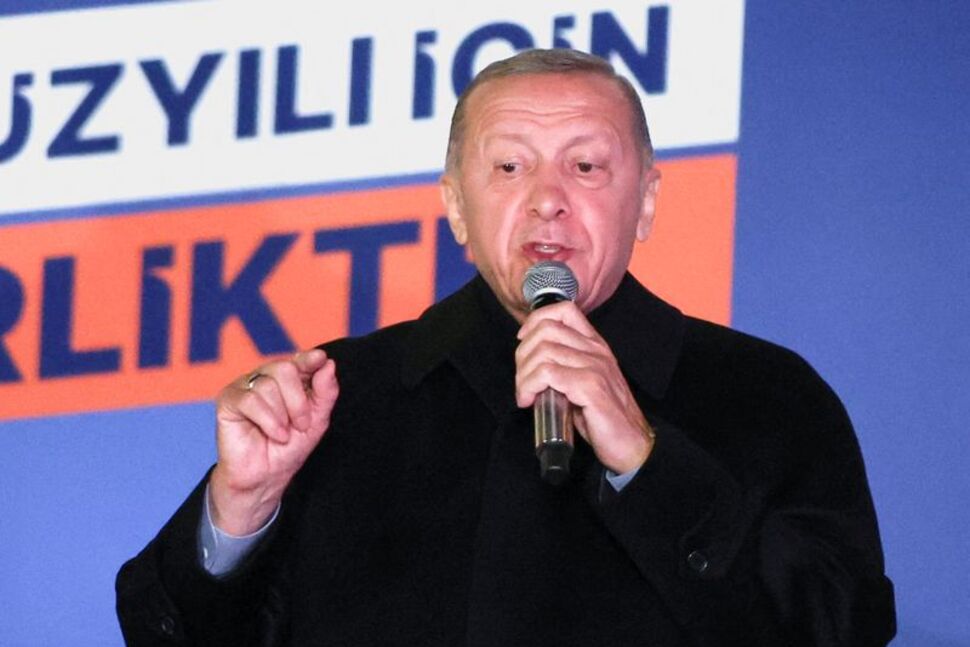Turkey's market rout deepened on Tuesday amid investor expectations that President Tayyip Erdogan could be able to extend his rule - and his unorthodox economic policies - into a third decade.
Banking stocks and sovereign dollar bonds slid for a second day and the cost of insuring exposure to Turkish debt rose further after Erdogan defied expectations in Sunday's presidential race, securing just under the 50% threshold needed to win outright and giving him the lead over opposition rival Kemal Kilicdaroglu, ahead of the May 28 runoff vote.
"Markets are now reacting to the fact that we're probably going to get a return to the previous administration and a continuity of the policies that have made Turkey almost un-investable as far as Western fund managers are concerned," said Jon Harrison, managing director of emerging market macro strategy at TS Lombard.
Ahead of the elections, opinion polls showed Kilicdaroglu in the lead, with investors expecting him to scrap some of Erdogan's economic policies, including costly efforts to prop up the lira currency.
The lira, which analysts say has become increasingly managed by the Turkish authorities over the last year, set yet another record closing low of 19.724 after touching 19.744, not far from the intraday record low of 19.80 hit in March.
Longer-dated, dollar-denominated government bonds had the biggest falls in fixed-income markets, although key corporate and banking sector bonds also edged lower.
The government's 2045-maturing bond dropped 3 cents to trade at 71 cents on the dollar. Five-year credit default swaps, which indicate the price of insuring government debt against default, climbed to 653 basis points, up 19 bps from Monday's close and 161 bps above Friday's pre-election level.
Credit ratings agency Fitch said the political and economic uncertainty would continue at least until after the runoff, and that its focus regarding Turkey's "B"/Negative sovereign rating after the election would be whether the policy mix "becomes more credible and consistent."
Turkey's interest rate swap forwards, which are a rough guide for where traders expect the country's interest rates to be once "risk premia" is added on, are now pricing them at around 27% in a year's time, compared with a pre-election level of over 40%.
Banking stocks, which had surged 26% in the week ahead of the election, closed just under 8% lower on Tuesday to take their two-day losses to nearly 17%.
Shares of Yapi Kredi, Is Bank and Akbank plunged more than 9%.
Mining company Koza Madencilik and steel producer Kardemir were among the best performers on the BIST-100 index, rising nearly 10% each%.
The overall Istanbul bourse index, which had notched a 6.1% fall on Monday, closed up 2%. Still, some warned there could be further downward pressure.
"Continued capital controls and effective FX interventions, albeit unsustainable, should mean less volatility in the shortest end of Turkish asset prices," Erik Meyersson, chief emerging markets strategist with SEB Bank, wrote in a note.
"That said, the unsustainability of the current policy environment is highly negative in anything longer than the shortest of time horizons, and we cannot rule out a sharp adjustment in Turkish asset prices within a year."
Source: Reuters



























